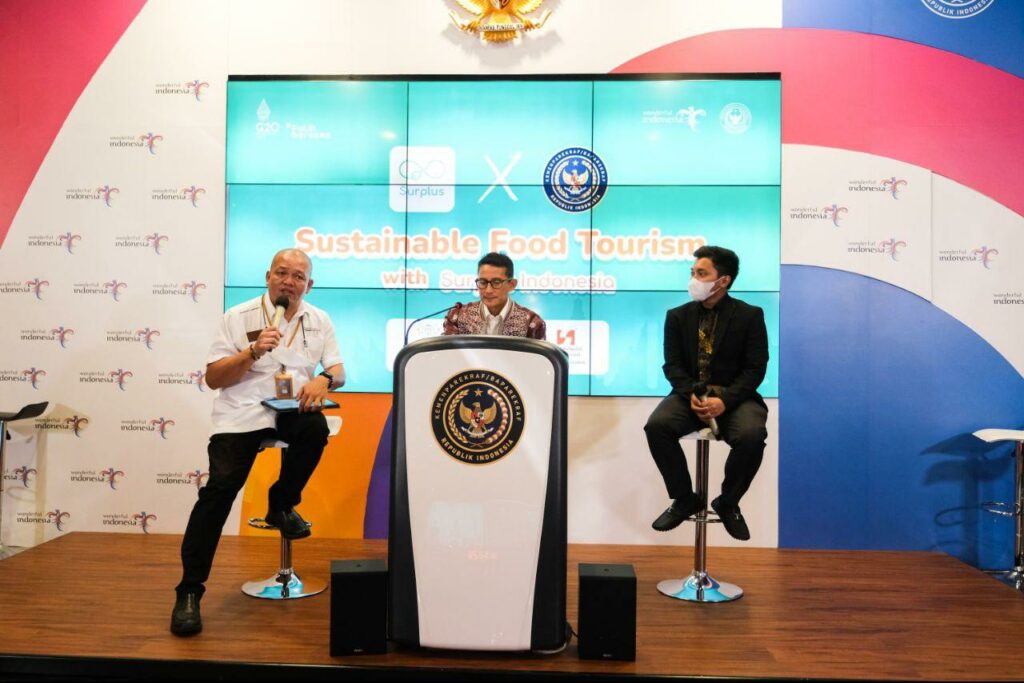INDONESIA MINISTRY OF TOURISM AND SURPLUS INDONESIA LAUNCH AMBITIOUS PROGRAM TO FIGHT FOOD WASTE
Indonesia’s Tourism and Creative Economy Ministry has launched an ambitious food waste reduction programme in partnership with start-up company Surplus Indonesia. The initiative, called the Sustainable Food Tourism Program, integrates a number of hotel chains and tourism service suppliers as well.
The Sustainable Food Tourism Program from the Ministry of Tourism and Creative Economy targets a significant reduction of the level of food waste in Indonesia.

According to the Food and Agriculture Organisation (FAO), food waste refers to a decrease in the quality or quantity of food at retail, food service and consumer levels. Food loss is wasted food before it reaches the consumers.
Based on data from a study by the Ministry of National Development Planning (Bappenas), the amount of wasted food in Indonesia from 2000 to 2019 reached 23-48 million tonnes per year. This is equivalent to 115-184 kilograms per capita per year.
“The huge food waste problem in Indonesia is truly ironic,” said Indonesia’s Minister of Tourism Sandiaga Salahuddin Uno. “Because, based on numbers provided by the Global Hunger Index 2021, hunger level in Indonesia is ranked the third highest in Southeast Asia. This is our common problem. I expect especially actions in the tourism industry sector in hotels and restaurants that have food and beverage facilities.”
100 tons of food to be saved
For this reason, the Ministry of Tourism has teamed up with Surplus Indonesia and hotel chains across the country on the initiative to reduce the rate of food waste and food loss. The three hotel chains currently involved are Ascott Limited-Indonesia, Artotel Group, and Swiss-Bellhotel International.
Speaking about the aim of the program the CEO and Founder of Surplus Indonesia, Agung Saputra, said: “Our target in 2023 is to save more than 100 tons of food from the hotel industry that can prevent financial losses of $350,000 to $700,000 and prevent more than 1,000 CO2 gases from being produced from 100 tons of food.”
One solution, as suggested by Saputra, could be for the participating hotel chains to save any surplus food and then resell it at a reduced price to people with low income.
